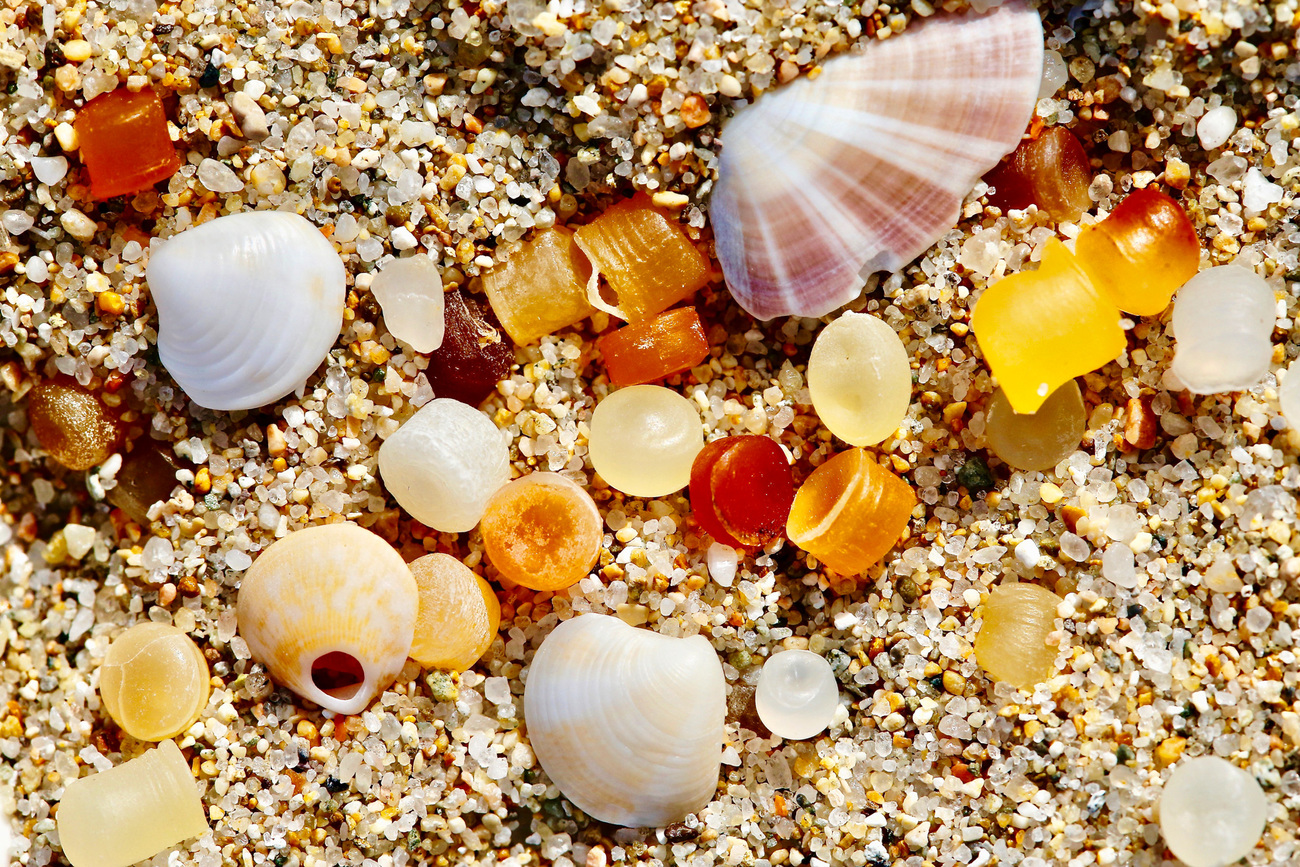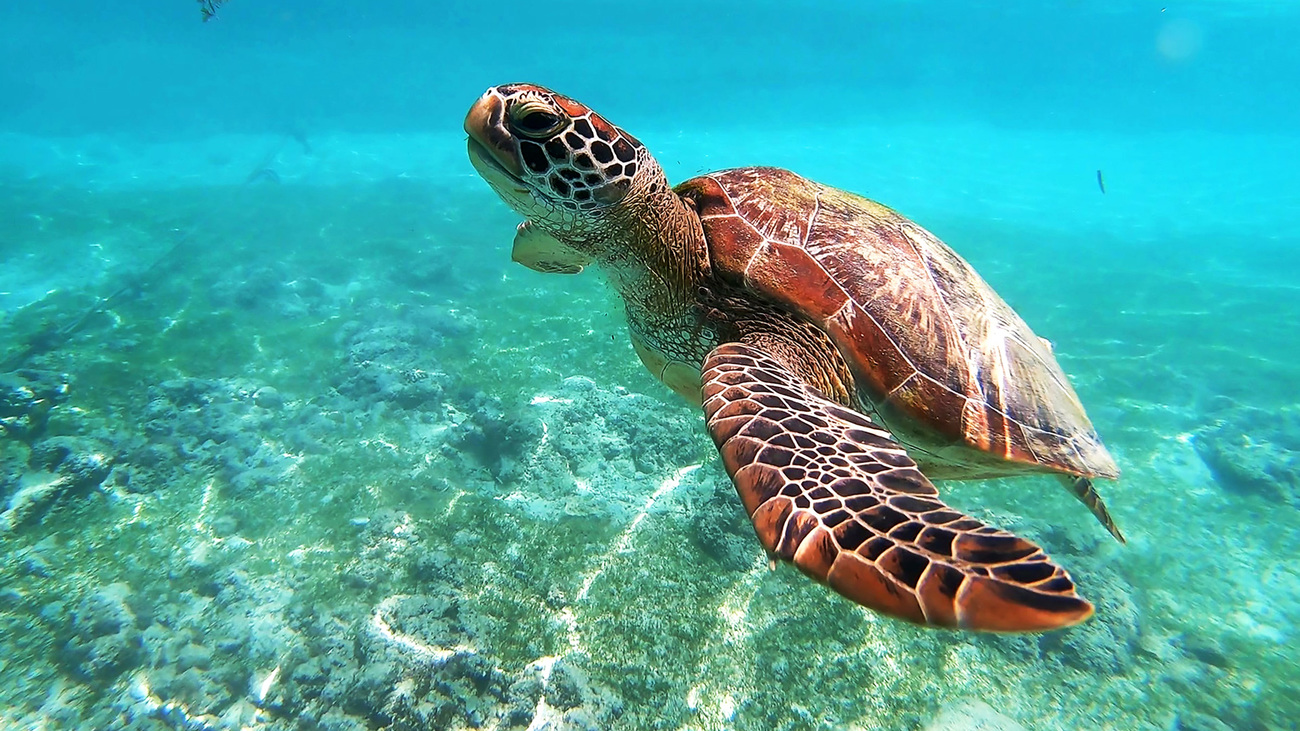Plastic nurdles: the barely visible pollutants threatening our ocean
Plastic nurdles: the barely visible pollutants threatening our ocean

However, there’s something else that a quick glance would not reveal. Grab some sand in your hands and pay close attention to what’s in it. If you’re hawk eyed, you may notice a new foreign object.
Nurdles, a startling toxic waste you’ve probably never heard of, are lentil-sized granules of plastic pellets, typically less than five millimeters wide on average, used to manufacture all sorts of everyday use plastic products that we have in our homes and workplaces. Along Kenya’s beaches, these tiny pellets are barely visible because they can hardly be distinguished from the sand.
While invisible to the untrained eye, there is an astonishing quantity of this plastic waste in our environment. A staggering 230,000 tons of these plastics end up in our oceans every year. Like any plastic waste, nurdles do not decompose—instead, they disintegrate into microscopic nano plastics, which are consumed by the smallest of marine as well as terrestrial animals. Arguably the most dominant and harmful pollutant on earth, they are easily mistaken for food by fish, seabirds, and juvenile sea turtles, posing a threat to marine life, the fishing industry, and human health.
Nurdles are made of fossil fuels and other chemicals. These chemicals are harmful to the environment because they introduce toxic wastes that travel up the food chain. They’re a threat not just to human health and livelihoods, but also to Kenya’s rich marine biodiversity.
How shipping lanes harm ocean life
As the primary raw material for almost every plastic product on earth, nurdles are transported around the world by large container ships. They are mainly made from polyethylene, polystyrene, and polyvinyl chloride. Plastic pellets produced on one side of the globe are melted down and converted into plastic goods on the other side.
Over these long journeys by sea, little regard is given to how nurdles are handled along international shipping lanes. Poorly packaged nurdles from cargo ships often leak from damaged or lost containers during transport. They also spill from ships in the event of an accident or when containers fall overboard. Approximately 1,382 shipping containers are lost at sea annually, according to a World Shipping Council survey of its members, who carry about 90% of the world’s container traffic.
Shipping lanes directly impact marine life in a number of other ways, too. Ship strikes often kill marine megafauna such as dolphins, whales, and endangered dugongs—this partly explains rising incidents of marine mammal strandings globally. Additionally, ocean noise pollution impacts the feeding, breeding, navigating, and communication of whales. Pollution from plastic nurdles is yet another reason why shipping companies need to take action to protect marine life.

Virtually invisible, more harmful than oil spills
Globally, trillions of nurdles wash up on coastlines following incidents of plastic spills from cargo ships, or remain floating in our oceans, causing significant damage to sea life. Despite the harm they bring, nurdles are still not classified as hazardous according to the International Maritime Organization (IMO), the United Nations agency charged with the safety and security of shipping and the prevention of marine pollution by ships.
This is a tragically erroneous classification that glosses over a sobering reality: nurdles are more hazardous than oil spills, yet nurdle spills are underreported in media. If they were properly classified as hazardous substances, companies would have to take preventative measures to prevent spills—proper storage, labelling, handling, and emergency response protocols.
And the threat isn’t just local—the impact of a single nurdle spill from a container ship can span up to 2,000 kilometres of coastline, devastating marine life and coral reefs.
In 2018, two container ships collided in Durban Harbour, South Africa spilling millions of plastic pellets that washed as far as Perth, Western Australia—about 3,000 kilometres away. Inevitably, such catastrophic incidents do widespread harm with long-lasting effects. According to a 2019 autopsy report, migratory species of seabirds have been documented ingesting plastic pellets. These birds can travel hundreds or even thousands of kilometres, spreading this toxic pollution around the planet.
UN experts warn that if countries fail to swiftly act on curbing the production of plastics, the world will be unable to cope with the colossal quantities of plastic waste by 2034. This cautionary message comes at the height of crunch talks in Busan, South Korea, on a landmark international treaty to combat global plastic pollution.
Legislation and innovation
In East Africa, Kenya is emerging as a leader in the fight against plastic pollution and is among the first countries in the region to ban the importation, production, and use of plastic bags—in fact, the groundbreaking Kenyan plastic bag ban is one of the toughest laws against single-use plastic in the world. This ban has essentially made it illegal for international visitors coming to Kenya to have plastic bags in their luggage.
As the plastic pollution problem is so pervasive on the coast of Kenya, a local organisation, The Flipflopi Project, is working to save local wildlife, and people, from these toxic materials. The Flipflopi Project, who were recently honored with IFAW’s prestigious Innovator of the Year Award at the 2024 Animal Action Awards, conducts coastal cleanups, uses recycled plastics to make products needed in the community (including their famous sailing dhow made from 100% recycled plastics), and conducts educational awareness drives and advocacy about recycling, reusing, and reducing plastics use. Their work is a win for animals protected from nurdles, and a win for local people who use their products.
‘Plastic pollution is a complex issue that must be tackled at different levels,’ says Dipesh Pabari, co-founder of the Flipflopi Project. ‘At Flipflopi, we are focusing on driving awareness, legislation, and behavior change to end single use plastic and engage stakeholders to embrace the idea of recycling and reusing.’
Help protect marine life
Supporting Flipflopi is just one of the many ways IFAW helps protect animals and people.
At IFAW, we are committed to protecting the ocean and the life within it. Marine ecosystems are a vital part of our planet and keeping them healthy is one of the things we need to do to mitigate and adapt to climate change.
‘We must prioritize waste management because when plastic leaks into the ocean, it harms marine biodiversity as well as human livelihoods,’ explains Lilian Mulupi, IFAW’s marine conservation program officer in East Africa.
You can help. Your support will be vital in helping IFAW protect marine animals from pollution, ship strikes, ocean noise, and all the threats they, and we, face.
Related content
Our work can’t get done without you. Please give what you can to help animals thrive.